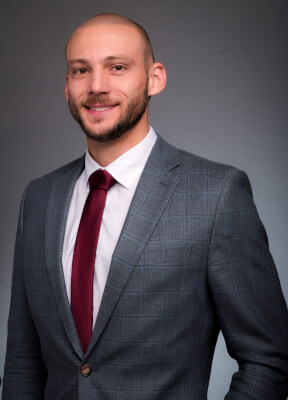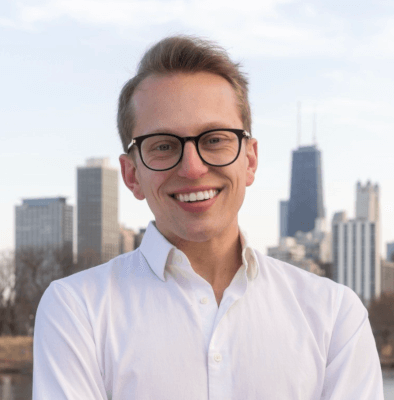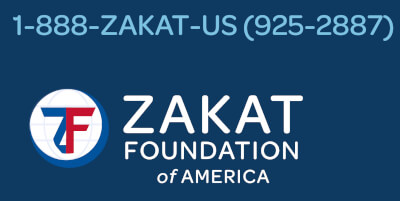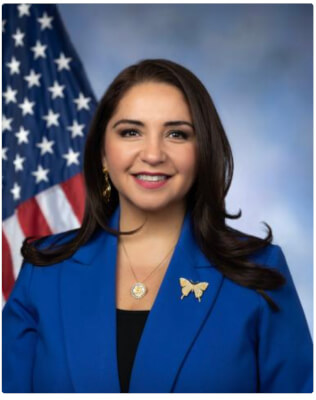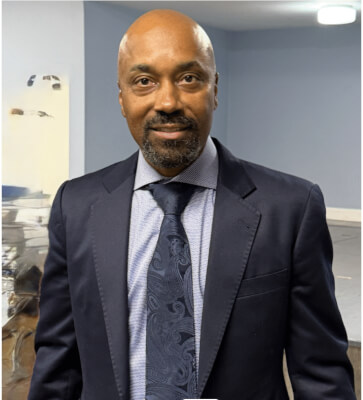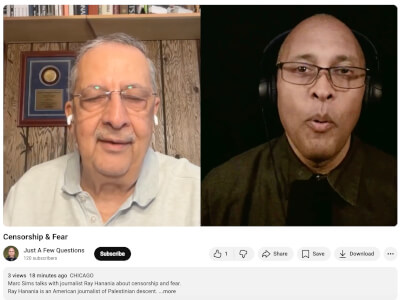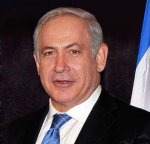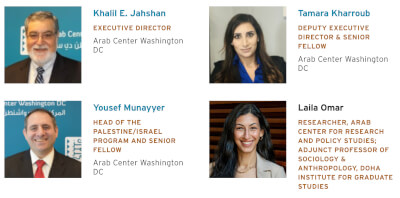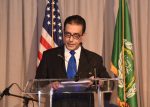Professor Bayram Balci Analyzes Turkish elections
Exclusive to The Arab Daily News: Q&A with Bayram Balçi Professor at l’Institut d’études politiques de Paris.
By Abdennour Toumi
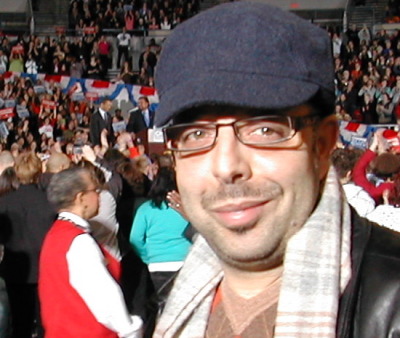
Professor Bayram Balci is a non-resident scholar in Carnegie’s Russia and Eurasia Program, where his research focuses on Turkey and Turkish foreign policy in Central Asia and the Caucasus. He is also affiliated with CERI Sciences Po, in Paris, France.
As a research fellow at the French Institute for Anatolian Studies in Istanbul, Turkey, Balçi established the institute’s office in Baku, Azerbaijan. During his four-year mission, he studied the features and interactions of Shia and Sunni Islam in Azerbaijan and its relations with Iran. From 2006 to 2010, he was the director of the French Institute for Central Asian Studies in Tashkent, Uzbekistan. During his time in the region, his research also examined Turkey’s influence and the Islamic revival in Central Asia.
ADN: In the light of the November 1st elections out-come, President Erdoğan and his party can breath a deep breath now. How did you read the November 1st election out-come?
Prof. Balçi: We can actually read the result of these elections as a relief for President Erdoğan, who in last June had undergone certain electoral lapel, and with almost 50 % of the votes succeeds in dominating again the situation in its country. It is a beautiful victory, which allows him to breathe, but I am well afraid that everything is not very well in the coming weeks and months because the Turkish society is divided, polarized and the absence of a prospect of a solution for the Syrian question leads to predict difficult times for Erdoğan and his team in the power. This polarization is largely connected to choices and political strategies, which were made by Erodğan during this long election campaign for June and November elections.
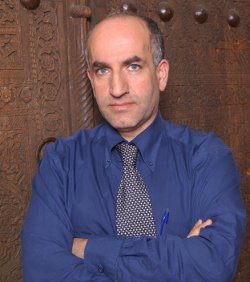
The Alawits (sectarian minority) – Sunni disagreement strengthened recently. Certainly, everything is not the fault to Erdoğan because the Syrian crisis increased in a way the tensions between Sunni and Alawits in Turkey, but I shall say that he did not know how to calm these tensions and reassure the Alawits citizens, who always have the feeling to be second category citizens.
There is even certain disagreements between secularists and conservatives, which did not become blurred. Finally, other disagreement, the Turks are divided between those of whom adore Erdoğan and those, who hate him because of politics. In fact, I think that difficult times are ahead waiting for Erdoğan because Turkey becomes harder and harder to govern, this is mainly because of the transfer of the Turkish society.
ADN: Lets face it, Turkish society and political spectrum are polarized then ever, there are, who are still blaming President Erdoğan for this polarization. Is there an Erdoğan fatigue or Turkey is no longer a homogeneous country?
Prof. Balçi: You are right to ask this question, it has become usual to accuse Erdoğan of dividing the society in order to manage it; its better, I think that even if actually there is a large share of responsibility in the worsening of these tensions between diverse social groups in Turkey, and that the society became very complex to be governed in a paternalistic manner as often is the case in the Middle East. Heads of state do…
Nonetheless, I shall say that Erdoğan is a victim of his own success: his political, economic and social reforms begun especially during his first two-term, from 2002 until 2011, has made Turkey a complex country, with previously non-existent middle class for instance…
ADN: A follow up to my question, President, Erdoğan, has proven his opponents that is a popular President, Turkey has been enjoying economic prosperity and political stability for thirteen years, and this is grace to President Erdoğan and his party economic team. (one could argue its not true, the economic and political reforms were launched by the President Turgut Uzal in the 90s).
Prof. Balçi: I think that the victory of Erdoğan in November 1st, to understand especially in the alder of the security situation in Turkey. Erdoğan took away many electoral victories since 2002 because of his reforms, which brought to Turkey a real economic prosperity and a political stability that were profitable to the entire country. However, I think that the victory of November 1st, was especially the sentiment of fear felt by the Turkish people, so they did choose stability over anarchy.
The CHP, MHP and HDP did not know how to unite their strengths to form an alternative to the AKP government. The MHP, however, refused to work last summer with the AKP for a coalition government as a result, as a result, lost big, hence its credibility with its voters; what in the end, facilitated the work of eroding its votes to the AKP. Finally, the HDP, which did not know how to convince the PKK (the Kurdish armed movement) to hold their weapons, consequently, lost its credibility, and because of this the HDP lost a large part of the Kurdish and the Turkish votes in November 1st.
ADN: If so, could one breath again, and look forward for Turkey’s economic prosperity and political stability?
Prof. Balçi: I do not think that the country is going to continue to be stable and prosperous, the reasons why the Turkish people voted for the AKP. However, even unstable and less prosperous, Turkey is again going to be among the most stable and the most prosperous countries in the region (MENA). In the end of the day, in a general comparative prospect, in the entire Middle East, is still the country, which one can easily invest, and in Turkey that one can think again freely and criticize the government, even though, if I hold some reservation… in the recent weeks too many journalists and other dissidents were worried about the power of Erdoğan.
We often say that Erdoğan decided to wage war to the PKK and to DAESH (ISO) in a purely vote-catching strategy. There is doubt in this charge, but I believe that at the same time, the situation is very complex. As for the break of the truce with the PKK, it would be inaccurate, thus inequitable to attribute the responsibility on Erdoğan alone, in the relaunching the hostilities. The PKK recognized that has never respected the commitment at the beginning of the truce. We know what is more, and there was also recognized by the PKK’s leaders that during the truce the PKK recruited more activists, and even increased its stocks of armament in Turkey.
ADN: Last summer, ISO Turkey’s Emir declared “Jihad” against Turkey and called President Erdoğan ‘tyrant.’ How this threat would be taking seriously by Ankara? And does it still relevant?
Prof. Balçi: It’s a direct threat to be seriously taken because the Turks learned well that ISO was never reliable, and Ankara showed its indifference that was never directly supported somehow, its a matter of 900 km with a country you cannot act as one thinks at best. Turks know to some extent ISO (DAESH) can knock in Turkey, as it did in Suruç in July and in Ankara in last October. I do not think that Turkey can bombard abundantly the positions of ISO without worrying about its national security and its people’s safety. Though, I think that is actually the break up is clear between Turkey and ISO, kind of implicit “non-aggression pact,” which existed between Ankara and ISO.
ADN: Knowing that President Erdoğan ideological sworn enemies used ISO card during their last campaign elections, accusing him for being passive if not complicit with ISO. Is this card still in their hands or President’s Erdoğan double two-front war actions made it a lay card?
Prof. Balçi: I think that the opponents of Erdoğan did not understand enough to some extent it was difficult to have for Turkey a clear and precise Syrian crisis policy. Certainly, the Turkish policy in Syria was a failure, but I do not see a single country of the region or the international community as whole, which knew how to lead a coherent policy in Syria, except Iran and Russia, of which one cannot be proud because these countries saved the Bachar’s regime, and so were compline on his inhuman acts and policies. Turkish policy in Syria was maybe sometimes inept, but at least it had the merit to have been at first on top, notably on the refugees dossier. To convince Bashar to start political reforms, then was noted that this regime was not open to any reforms; on the other hand, the Turkish opposition focused too much on this so-called ambiguous relation. Turkey had in Syria, where the most armed organizations, which are on the eye of Ankara, like Ahrar a-Sham, Free Syrian Army or the Turkmen Front. So, I would say that the Turkish opposition is in an excessive way to politicking Turkish politics on the Syria crisis to put in check Erdoğan, for example, to say that Erdoğan determines Syrian policy according to the developments on the field.
ADN: Knowing the region is full of contradiction: Don’t you think the on-going war on terror launched by Ankara against ISO and the PKK, would continue, and could fireback on the soft target touristic sites in Antalya, Ezmir, Istanbul, which would certainly create a terrible impact economically: the Sharm a-Sheikh syndrome.
Prof. Balçi: Yes, indeed it is the real threat, which presses Turkey. If the confrontations between the Turkish State and the PKK continue, and if ISO (DAESH) continues to be an imminent threat for the country. It is likely that the tourism sector takes a severe blow, like the ones is in Egypt and Tunisia.
ADN: After the suicide attack in Ankara, it was read as Turkey has entered in a violence cycle — and security is on the AKP main agenda. How could Ankara come out credible on this issue in the after math of the Nov 1st parliamentary elections?
Prof. Balçi: Turkey has indeed a credibility problem in its fight against ISO for the reason that when this criminal organization emerged, Turkey did not take a clear position against it, it did not fight it, and there have been serious allegations that Ankara has even approved (or helped it according some sources that are difficult to verify) its tactics, considering that it was a way to accelerate the end of Bashar regime. Because of that this ambivalence Ankara will have some credibility questions in its fight against ISO. But at the same time, there is some rationality in the Turkey’s attitude toward the ISO: the unrecognized deal was that Turkey would not fight ISO as long as ISO does not act against it inside the Turkish territory. But after Suruç and Ankara bombings this tacit “non-aggression pact” was broken by ISO. For that reason Turkey can tell that today ISO has become an imminent threat to Turkey, so that Ankara decided to go after ISO.
ADN: Do you think the Kurdish nationalism fever calmed down after the Nov 1st, verdict?
Prof. Balçi: I don’t think so. There is a very strong feeling about the Kurdish nationalism among the Kurdish in general. The good thing for the Kurdish nationalists is that, they realized that the PKK is not a good option for them. I think part of that was the cause of the HDP decline in November election, was because of the assertive and “warrior” strategy of the PKK. In that sense there is a good reason to think that the PKK will have to do a sort of ‘self-criticism’ reflection to understand that the strategy to get involve in the Syrian Kurdish cantons are not applicable for the Turkish-Kurdish region. The Kurdish nationalism will not diminish, however, there is a favorable context and dynamics for the Kurds in the Middle East — the de facto alliance between the PKK and the U.S. will reinforce this sentiment of nationalism.
ADN: On this stance, do you think the Turkish-Kurd nationalists and the Syrian-kurds have been jubilating because of Ankara’s shifting strategy in the wake of the Suruç attack in July; what is the prospect of the buffer zone, does Ankara allow an autonomous Kurdish canton ‘confederation’ the so-called (ROJAVA) few miles on its borders, like one put in place in Çezira in Turkey?
Prof. Balçi: I think that Kurds are not realistic in their attempts to get an autonomous region in Syria without the approval of Turkey. Of course Turkey cannot prevent them from having an autonomy, but at the same time, this autonomy cannot be viable if it is not in peace and full cooperation with Turkey. Look at the Kurdish Regional Government in North Iraq. If the KRG became a viable autonomous region it was possibly largely thanks to the good relation with Turkey since Ozal policy and then pursued by all Turkish leaders. In Syria we have the same configuration. Kurds were unhappy with the Ba’ath’s regime in Damascus, now that this regime is in troubles, they try to cooperate with it to have more autonomy. This is completely absurd as we know that Bashar’s regime is condemned to disappear. In that case the Kurds should cooperate with the Syrian opposition and with Turkey because without them it is impossible to have a normal existence in this region.
ADN: How do you see Paris’ position towards the Kurds? France has been a welcoming land for the Kurds, despite the 2013 incident (the assassination of Kurdish activists on the French soil)
Prof. Balçi: There is a huge sympathy in France for the Kurds and for the Kurdish nationalism, something, which is not new at all. France has decimated its minorities in France, like the Breton identity or various identités patoises. For that reason there is a sentiment of culpability that explains France’s sympathy for minorities all around the world. Kurds and Armenians are among these minorities. This sympathy will develop in the future.
The Kobané episode has considerably boosted this good image of the Kurds in France and their cause…
ADN: Professor Balçi, as an expert on MENA politics and French foreign policy in the region, what is your evaluation on President Hollande’s hesitant paradigm after the direct involvement of Russian in the Syrian civil war?
Prof. Balçi: I think that France policy in Syria is hesitant since the beginning of the Russian intervention and more importantly after the Paris November 13th, attacks will mark a new massive engagement in Syria, but this will not change [our] position in the Syrian crisis, in the sense that we will continue to remain in the same stalemate. As long as Bashar is in power, we will have a problem of credibility in our policy. I know that the departure of Bashar will not resolve all the problems, but in terms of symbol and justice toppling Bashar could create a new dynamic in the sense that we could say that the author of a huge massacre in Syria has been punished with the help of France and other countries. There is a rapprochement between France and Russia on the Syrian crisis since the terror attacks of Paris, it seems that both countries have the same priority in Syria to destroy ISO. But here again I am not sure that France and Russia have a complete convergence of the visions in Syria because Putin is still an ardent defender of Bashar, but not France, even though the chock of the Paris attacks gives [us] the impression that we are ready to work with any force capable to help [us] to punish the Islamic State Organization.
ADN: What do you think about Ankara’s zero problem doctrine strategy with its southern neighbors, and the prospect of the Syrian civil war and its complexity?
Prof. Balçi: This policy was very impressive and great ambition. It was successful in many countries, but unfortunately it was ruined by the Syrian crisis and since the Turkish engulfment in the Syrian crisis; Turkey is completely isolated and this isolation would have been the same with another leader than Erdoğan.
ADN: Where is Turkey heading?
Prof. Balçi: The Syrian crisis will determine the future of Turkey. The Kurds in Syria and Turkey will determine Turkey’s future. I have less and less belief in the Kurds will to live with the Turks in Turkey. As we have seen in June and November elections, there is a clear gap between the Turkish and the Kurdish provinces in Turkey. This sort of “legal” autonomy in the Kurdish provinces will be developed in the future. Now the question is how this autonomy will go and develop further with or without violence; that’s the question.
Thank you Professor.

Click here to subscribe FREE to Ray Hanania's Columns
- The Israeli-Palestinian Conflict: Is the Neither-Peace-nor-Security As-sumption Dominating Again? - June 7, 2021
- Algeria: “I Can See Clearly Now” - August 5, 2019
- Majesty Mohammed VI and General Gaïd Salah Tear Down This Wall! - July 29, 2019


